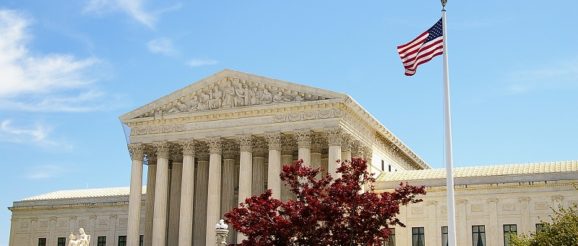SCOTUS Lands the Plane but Barriers to Legal Innovation Persist – Josh Blandi Writes in Above the Law | UniCourt Blog

From the Northern District of Georgia, to the 11th Circuit, all the way to the Supreme Court of the United States (SCOTUS), the battle over whether the law can be copyrighted in Georgia v. Public.Resource.Org has finally been settled in a historic win for open access to the law.
We are thrilled to share UniCourt CEO, Josh Blandi’s latest article that was published in Above the Law. In Josh’s article, “SCOTUS Lands the Plane but Barriers to Legal Innovation Persist,” he discusses the significance of SCOTUS’ ruling that “no one can own the law” and it’s far reaching scope prohibiting the work product of legislatures and courts from being copyrighted. Josh also goes on to discuss the persistent technical and financial barriers restricting access to legal data that are inhibiting innovation in the legal industry, and how there is still much work yet to be done for open law advocates.
Here below is an excerpt from the introduction of Josh’s article:
The Supreme Court’s recent ruling in Georgia v. Public.Resource.Org set an important precedent cementing the axiom that “no one can own the law,” by holding that states and private companies cannot copyright the law. But just because SCOTUS established that the law cannot be copyrighted, doesn’t mean that there aren’t still significant barriers impeding access to the law that are yet to be fully overcome.
In this article, we’ll discuss the key holdings in SCOTUS’ 5-4 decision. We’ll also put this new precedent in our current context and discuss the lingering obstacles that hinder legal innovation and continued progress in the legal profession.
SCOTUS Lands the Plane
In a previous article published this past November, we discussed the Ninth Circuit’s watershed ruling in hiQ v. LinkedIn, an overwhelming affirmation that the public has a right to access public data even when done so through automated means. At that point, the Eleventh Circuit had also recently ruled in favor of open access to legal data in Georgia v. Public.Resource.Org. We stated in our article that although “the facts could not be clearer in favor of open access in hiQ and Public Resource, the fight is not yet over . . . SCOTUS needs to land the plane to once and for all assert that the law can’t be copyrighted.”
Since then, the plane has touched down and settled the long-debated question of whether the law can be copyrighted.
Officially decided at the end of April, SCOTUS in Public Resource firmly holds that materials authored by judges and legislators cannot be copyrighted. In so holding, SCOTUS based its decision on an existing framework of precedent, one that deems the author of a work more determinative than the type of work when it comes to the question of its ownership.
As the majority states, “[i]nstead of examining whether given material carries ‘the force of law,’ we ask only whether the author of the work is a judge or legislator,” concluding that “whatever work [a] judge or legislator produces in the course of his judicial or legislative duties is not copyrightable.” This statement could not be clearer: if it was authored by an individual or group with legislative or judicial authority, it is law, and it is not copyrightable.
You can read the full article here on Above the Law.
Follow us on Facebook, Twitter, and LinkedIn for legaltech updates!
